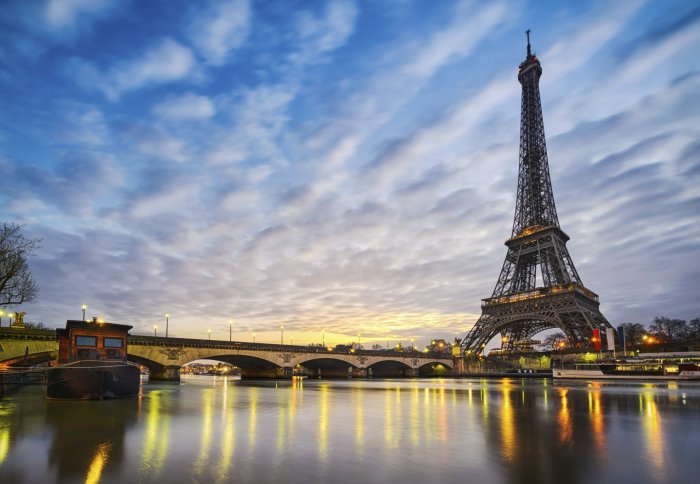

A group of international scientists have released a statement urging decision makers to take the necessary actions to avoid dangerous climate change.
The Earth League, a consortium of 17 world-leading scientists, have drawn up a wish list of the essential elements that should lie at the heart of the global climate deal to be agreed at the UNFCCC COP 21 negotiations in Paris this December.
2015 is the critical year for humanity to decide to move towards sustainability, including limiting climate change.
– Professor Sir Brian Hoskins
Chair of the Grantham Institute
The Earth Statement, released to coincide with Earth Day, summarises recent science on climate change, particularly regarding risks of impacts, such as sea-level rise and potential tipping points in the climate system, which may lead to irreversible changes. One of the tipping points highlighted in the statement is the melting of parts of Antarctica. Recent research, such as a study by Professor Martin Siegert from Grantham Institute on melting of the Totten Glacier in East Antarctica, suggests that ice melt in Antarctica has reached a point where it may now be irreversible.
According to the Chair of the Earth League, Johan Rockstrom, “we are on a trajectory that will leave our world irrevocably changed, far exceeding the 2°C mark. This gamble risks disaster for humanity with unmanageable sea-level rise, heat waves, droughts and floods.”
Later this year governments will meet in Paris to agree on a deal aiming to limit global warming to 2°C, an internationally agreed threshold for avoiding dangerous climate change. The statement calls on world leaders to step up their ambition to ensure an equitable and science-based global climate agreement in Paris, and outlines the eight key features that the group believe are fundamental to a successful deal.
Professor Sir Brian Hoskins, Chair of the Grantham Institute, and member of the Earth League said:
"2015 is the critical year for humanity to decide to move towards sustainability, including limiting climate change. Less than 2°C is still achievable and choosing this path will provide a huge stimulus for innovation."
The Earth League’s eight essential elements of climate action in Paris are:
- 1. Governments must put into practice their commitment to limit global warming to below 2° Celsius in order to limit unprecedented climate impact risks.
-
2. The agreement must be based on the remaining global carbon budget – the limit of what we can still emit in the future – which must be well below 1000 Gt CO2, to have a reasonable chance to hold the 2° Celsius line.
-
3. In the agreement, countries must commit to deep decarbonisation, starting immediately and leading to a zero-carbon society by 2050 or shortly thereafter. This will require a fundamental transformation of the economy.
-
4. Equity is critical. Every country must formulate an emissions pathway consistent with deep decarbonisation. For the sake of fairness, rich countries and progressive industries can and should take the lead and decarbonise well before mid-century.
-
5. Targeted research, development, demonstration and diffusion (RDD&D) of low-carbon energy systems and sustainable land use are prerequisites to unleash a wave of climate innovation.
-
6. The agreement should provide the starting point for a global strategy to reduce vulnerability, build resilience and deal with loss and damage of communities from climate impacts, including collective action and scaled-up support.
-
7. Countries must agree to safeguard carbon sinks and vital ecosystems, such as forests, which is as important for climate protection as the reduction of emissions.
-
8. Governments must urgently realise new scales and sources of climate finance for developing countries to enable our rapid transition to zero-carbon, climate-resilient societies.
Read the full statement on the Earth League website.
Article text (excluding photos or graphics) available under an Attribution-NonCommercial-ShareAlike Creative Commons license.
Photos and graphics subject to third party copyright used with permission or © Imperial College London.
Reporter
Emma Critchley
The Grantham Institute for Climate Change

Contact details
Email: press.office@imperial.ac.uk
Show all stories by this author



Leave a comment
Your comment may be published, displaying your name as you provide it, unless you request otherwise. Your contact details will never be published.